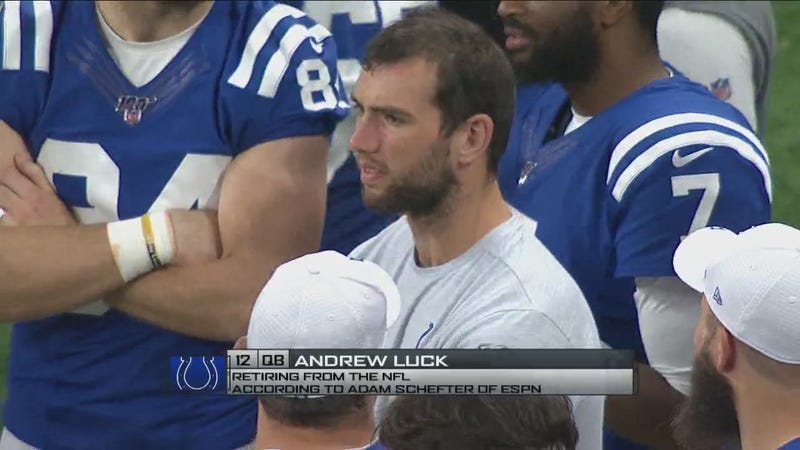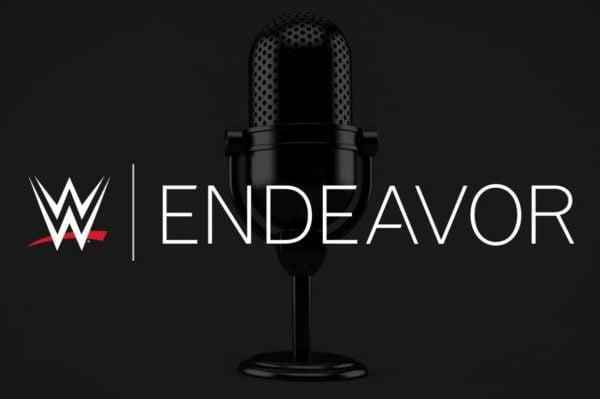I’m sure a lot of us spent Saturday night and most of Sunday thinking about what to do with the Andrew Luck story on Monday’s show. Despite the fact that so many people were locked into two exciting college football games on Saturday night, the second the 29-year-old All Pro quarterback announced his retirement from the NFL the headlines and our attention shifted to the NFL.

This is one of those stories that you’re going to talk about on Monday no matter what market you’re in. Even if you’re in Gainesville or Honolulu and you have to devote significant time to a close win to open the college football season, Luck’s retirement was such a dominant story on television and social media that you have to make time for it on Monday.
So what is the right way to talk about the story? Well, it really kinda depends on what your goal is, but there are two clear angles you can attack from – the football angle and the human angle.
Topics relating to what happens next on the field are a bit limited. How does this effect the Colts’ playoff chances? Is Jacoby Brissett just keeping the seat warm, or is there a chance he could establish himself as the team’s long-term answer at quarterback? Who is the new favorite in the AFC South?
The football topics are worth talking about, but ask yourself how much your audience really cares about an x-and-o breakdown of the Colts’ future. If you’re on the Fan in Indianapolis or SiriusXM’s NFL Radio, your audience probably cares a lot and is coming to your station to hear that content. Maybe the same is true if you’re on in Houston, Jacksonville, or Nashville. Anywhere else though, and it is tough to imagine that yields you anything more than an 8-10 minute monologue.
Storytelling is the lifeblood of talk radio and human connection is at the center of building an audience. There are human interest angles to Andrew Luck’s retirement that not only cover what goes into a 29-year-old deciding he is too mentally worn down to continue in the NFL, but also will hit your listeners right in the feels.

How did this effect your listener’s fantasy teams? How about their futures bets? When did they first have that “everything hurts all the time” feeling? These are simple questions tailor-made for Twitter polls and text topics.
What about the guy that never got off the bench in high school? Surely he has some thoughts on how soft Andrew Luck is or how he lacks class. Those are two comments always bubbling just below the surface for football fans. Ask your listeners if they understand Luck’s decision or if he let his team down and watch the pendulum swing back and forth between empathy and contempt.
Even responding to hot takes is pure human interest radio. Surely you saw the flaming takes on Saturday night from either Dan Dakich or Doug Gottlieb or probably both.
Let’s take these one at a time. First, Dakich’s Tweet is pure hot take nonsense that I am not even positive he buys into. Steel work, policing, and teaching are all hard work and are all tiring. None of them involve getting drilled into the ground over and over again by 300 lbs linemen. I am not saying playing football is harder. I’m simply saying that there is plenty about football that makes you just as tired as steel workers, teachers, and cops.
With Gottlieb’s Tweet, the word “millennial” absolutely sets off a visceral reaction in people. That reaction comes from both sides. The point is, it guarantees a reaction. Something tells me that is exactly what Gottlieb was thinking when he composed his Tweet.
Whether you are reacting to someone else’s over the top opinion or delivering your own, hot takes are all about emotion and reaction. That is exactly what you want from your audience. So, if you’re calling out Dakich or Gottlieb, let the listeners have their say too.

It’s not that the football angle isn’t important to the story of Andrew Luck’s sudden retirement. It just may not be the most important angle in your market.
Great sports radio that doesn’t come from ESPN, Fox, SiriusXM, or one of the other national outlets is built on passion from a local audience. There’s room for national topics, but before bringing national topics to a local show you need to ask yourself how you can get the best reaction from your audience.
The guy that calls into a sports talk radio show probably isn’t going to give you a coherent and well-thought out breakdown of the Colts’ QB depth chart. Give ask listeners how they feel about a story or an opinion though and you’re more likely to create interesting content.
All sports fans like action, some sports fans like stats, but everyone loves a good story. If you want to create maximum interest in a topic and give people that may not be die hard sports fans a reason to stay on your station and hear what you have to say about a story that has no local connection, focus on the human interest parts of the story and use the stats and football angles to deepen the narrative.

Demetri Ravanos is a columnist and features writer for Barrett Media. He is also the creator of The Sports Podcast Festival, and a previous host on the Chewing Clock and Media Noise podcasts. He occasionally fills in on stations across the Carolinas in addition to hosting Panthers and College Football podcasts. His radio resume includes stops at WAVH and WZEW in Mobile, AL, WBPT in Birmingham, AL and WBBB, WPTK and WDNC in Raleigh, NC.
You can find him on Twitter @DemetriRavanos or reach him by email at DemetriTheGreek@gmail.com.







